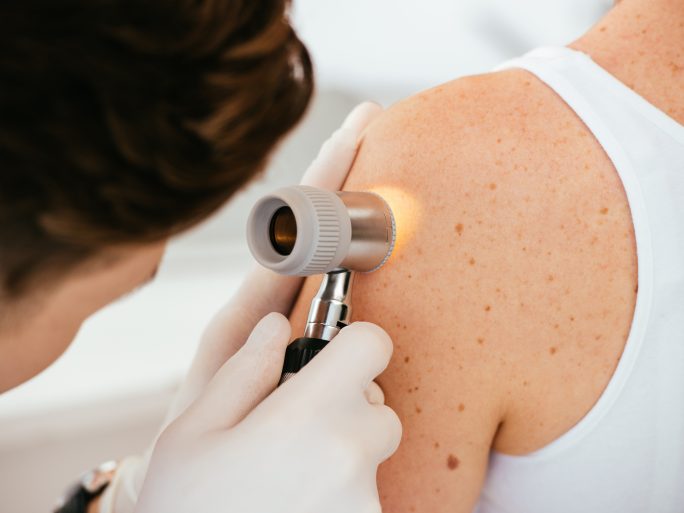AI-based Support for Skin Cancer Diagnostics

German Cancer Research Center has developed an AI-based support system for skin cancer diagnostics that explains its decisions.
Melanoma is responsible for most skin cancer-related deaths worldwide. However, early-stage melanomas are difficult to distinguish from other skin tumors. Recent advances in AI-based diagnostic support systems can help dermatologists diagnose melanomas and moles more accurately when shown digitized images of suspicious lesions.
Diagnostic responsibility lies with doctors
However, doctors want to understand which features determine the outcome of an AI system. “The ultimate responsibility for a diagnosis lies with the clinician. That’s why dermatologists are justifiably cautious about using AI-based systems without being able to understand their decisions,” says Titus Brinker, dermatologist and scientist at the DKFZ. However, the systems tend to include all correlated features in their decision-making, including spurious correlations.
“Our goal was therefore to develop a support system that is aligned with dermatologists’ perspective on melanoma diagnosis and explains their decision-making,” says Brinker. “Following previous work, we developed our explainable AI (XAI = explainable artificial intelligence) to provide dermatologist-like explanations based on the characteristics of specific, individual zones of the lesion.
Impact on diagnostic accuracy
In a three-phase study, Brinker’s team investigated the effects on diagnostic accuracy, diagnostic confidence and dermatologists’ trust in the explanatory system. The researchers also wanted to know which factors promote doctors’ confidence in this technique.
Over one hundred dermatologists from 33 different countries took part in the study. They diagnosed a test panel of digitized images of different lesions three times – based on their experience alone, with the support of a conventional AI system and with the XAI.
Consistency with XAI results
As documented in previous studies, the use of an AI system increased diagnostic accuracy in the detection of melanoma, but this could not be further increased by the use of XAI. Dermatologists’ confidence in their own decisions also improved with AI support – and increased significantly once again when using the XAI system. The doctors had particular confidence in their own diagnosis when their decision criteria largely matched the criteria listed by the XAI.
The results illustrate that XAI can improve the diagnostic confidence of clinicians and has the potential to increase the acceptance of AI methods among medical professionals,” explains Titus Brinker, head of the study, adding: “The European General Data Protection Regulation requires that all algorithm-based decisions must be interpretable for end users. Our work is an important first step towards closing the interpretation gap.”